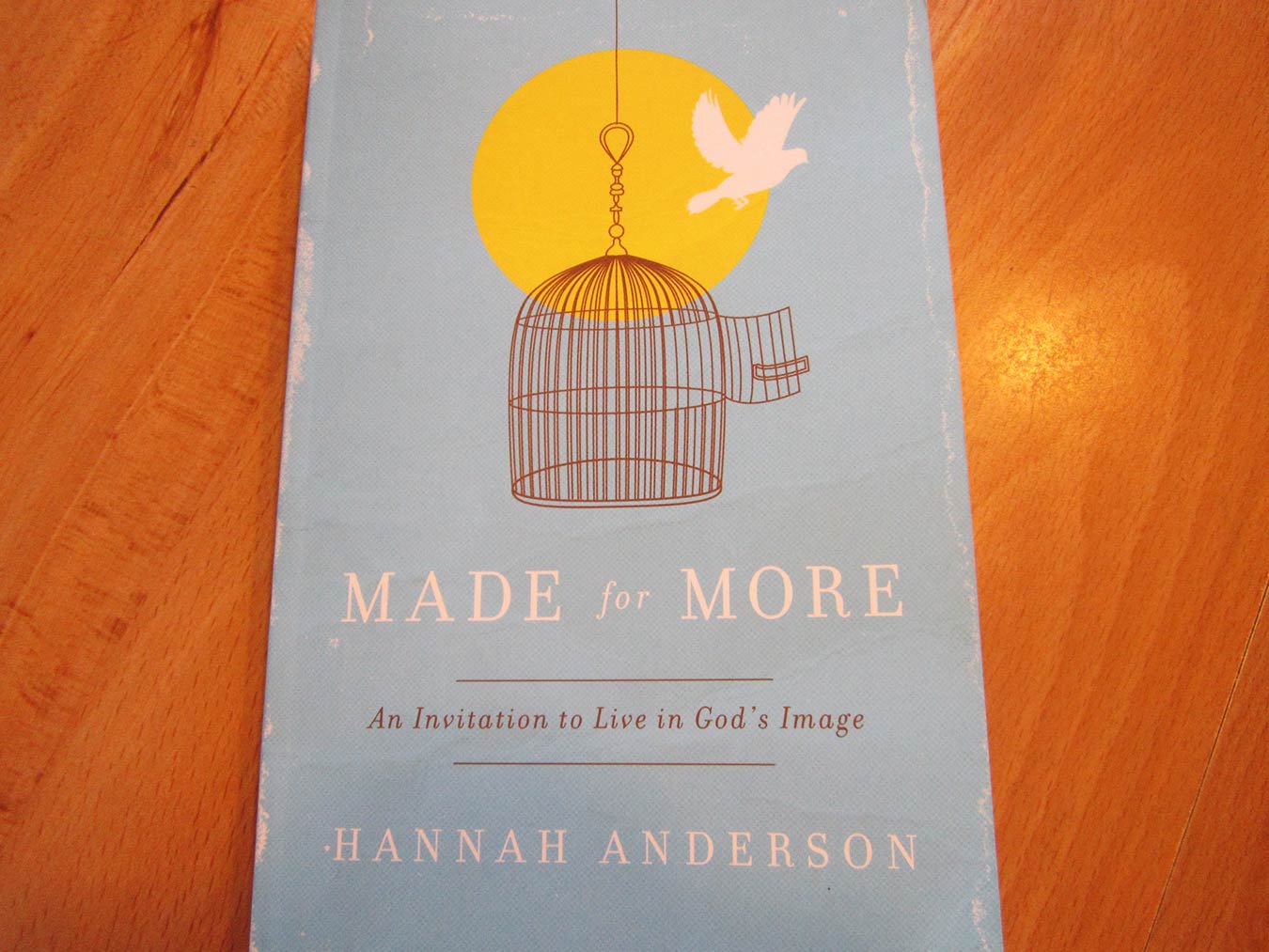As a woman who happens to be called to be a pastor, conversations about the intersection of faith and womanhood are extremely important to me. S0, when I was given an opportunity to review Hannah Anderson’s new book Made for More, I couldn’t say no.
I first connected with Hannah via Twitter, and have had some wonderful discussions with her about the interesting things that happen in ministry. It has been a joy to hear about how God is using her in ministry as a mother, and as a writer. Even though Hannah and I come at things from different perspectives at times, I have found her to be gracious, thoughtful, and I believe the book she has written is an important addition to the conversation of what it means to be a Christian woman.
Made for More is subtitled “an Invitation to Live in God’s Image,” and that is exactly what this book is. Hannah contends that if we have not first found our identity in God, any other qualifier we use to describe ourselves will be skewed, and we will fail to find the sense of purpose and meaning we are longing for. If a woman finds her entire identity in raising her children, for example, as her children grow up, she may find herself feeling anxious, or lonely, or lacking in purpose.
Hannah organizes her book around Romans 11:36: “For from Him and through Him and to Him are all things.” We find our identity as God’s children, and not as anything else we may find ourselves doing. Our careers and life stages are fleeting. Any attempt to find our identity in these things will leave us unfulfilled.
I resonated most with her call to living holistic lives, rather than compartmentalized and separated lives depending on whether we are at home or in some kind of outside employment. Hannah writes, “Wholeness comes when the parts of our lives work together because they have been united by something greater than themselves: when they have been united by God’s own wholeness.” No matter what we are doing or where we are, our identity should remain the same – an identity that is rooted in the reality that we are created in the image of God.
I also wanted to jump up and down with joy at her call not to define womanhood by what she calls the “pink passages” of Scripture. Women should not try and read themselves only into passages that are written to women or about women. We need to filter our reading of the Bible through the whole of Scripture. When we read only these “pink passages,” we begin to see Scripture merely as a checklist of what we need to do in order live as biblical women.
Hannah’s book is a needed word in a culture that increasingly tells us that we are whatever we do to make money. She cautions against finding our identity in the employment we have, or in any other identifier we might want to give ourselves: conservative, progressive, teacher, stay-at-home parent, intellectual, etc. All of those identifiers are nothing if we don’t first find our identity in God – the One whose image we were created in.
I kept waiting for Made for More to get into specifics that would move women from finding their identity in God to how it should be lived out in the home and in outside employment. Hannah never goes to that place in this book, and I am glad she left it open. The premise of the work is to help women (and all people) find their true identities without looking to those specifics and modifiers. Of course, living our imago dei identities becomes muddy and tricky once we start trying to figure out where we fit in terms of theological perspectives, employment, and our place in society. But, the way we answer the specifics is irrelevant if we haven’t first found the part of ourselves that is our truest identity.
Made for More gives me a tremendous amount of hope for the conversation regarding the role of women in church leadership. It backs the conversation up to where it needs to begin: to the fundamental truths that women are created in the image of God, women are human, and women do not become more or less Christian whether they are stay-at-home parents or employed outside the home. When a woman’s identity is found in her connection to God as one created in God’s image, the conversation shifts. It is no longer about arguing over identifiers. It becomes a matter of discernment and prayer.
I would recommend this book for women who feel scattered by all of the roles they play. Several of the chapters would be excellent for anyone (male or female) who is in a time of life transition, or who has recently experienced a career change. For those who have defined themselves by a painful experience, this book speaks a word of healing and gives a new place to begin. Overall, I was very pleased with Hannah Anderson’s book Made for More. It’s an important part of an ongoing conversation.

My Thoughts
